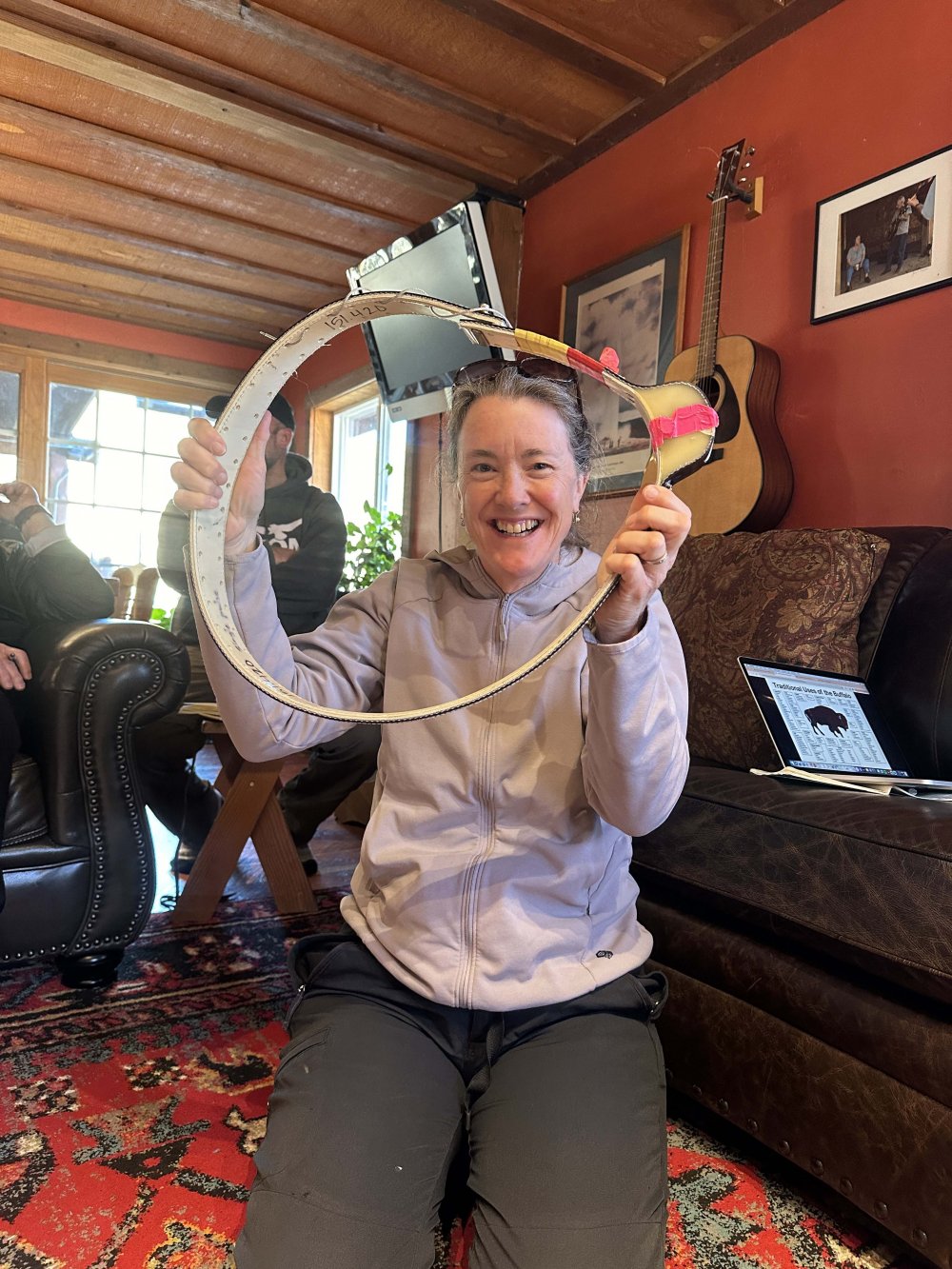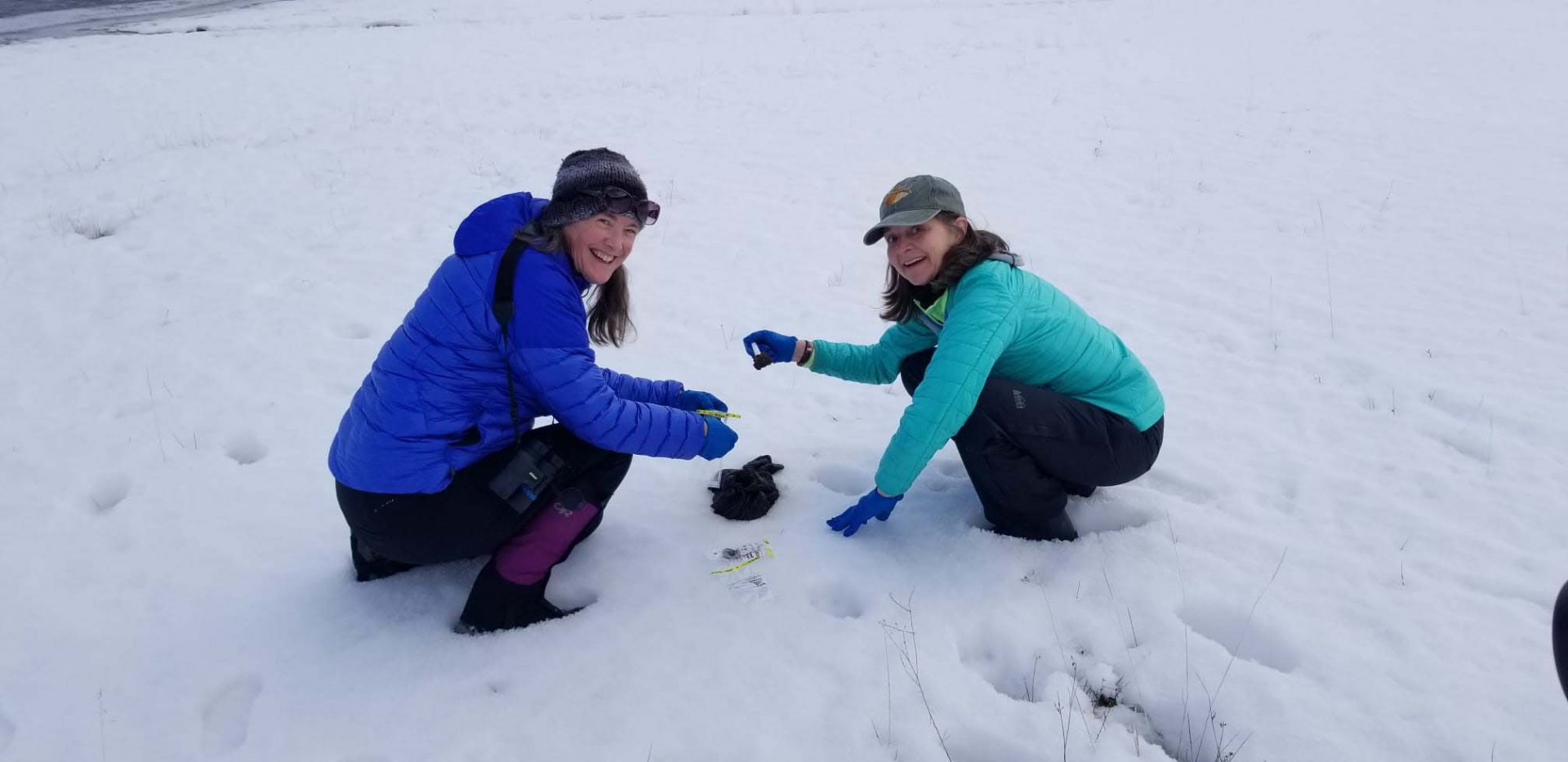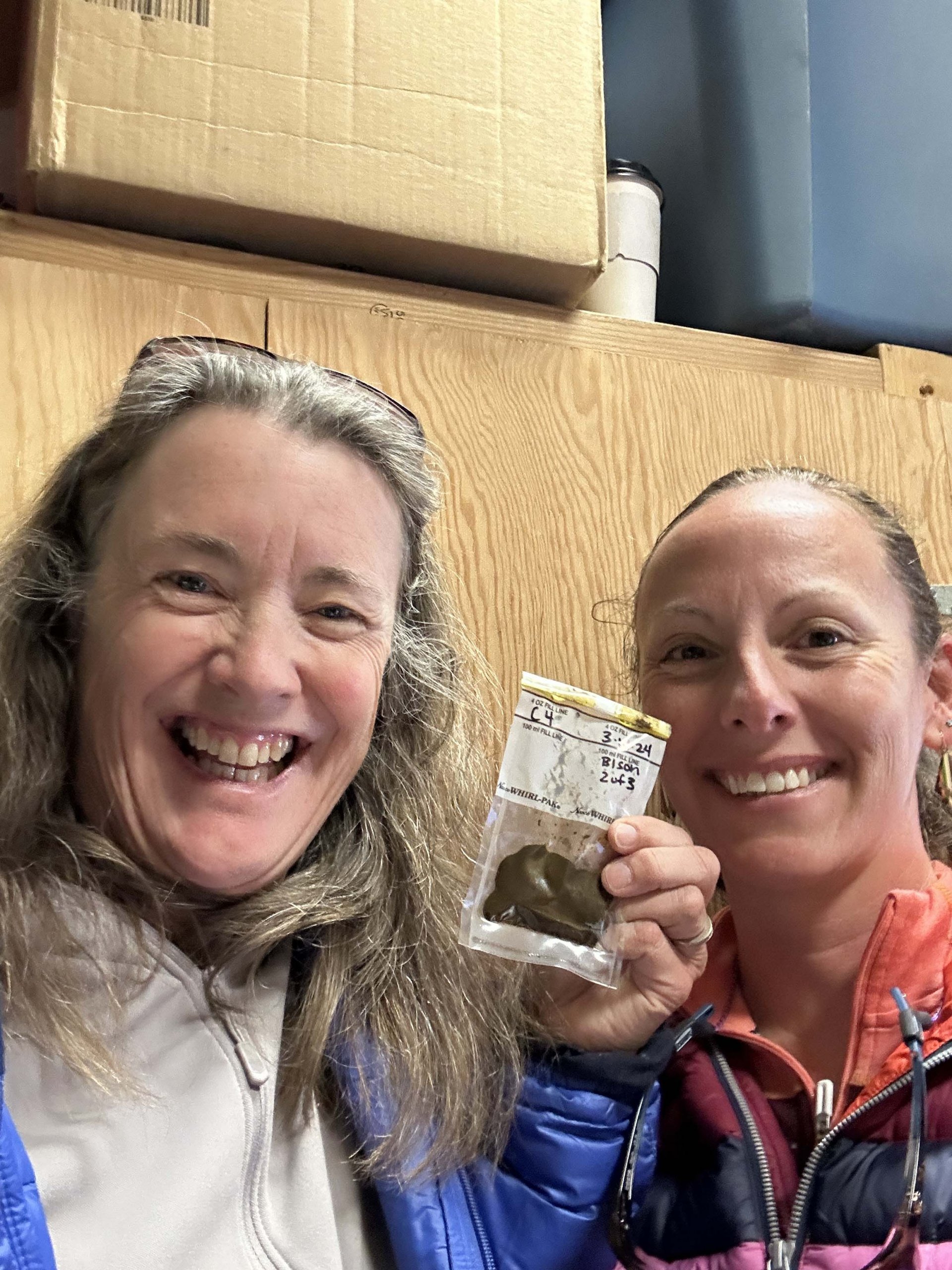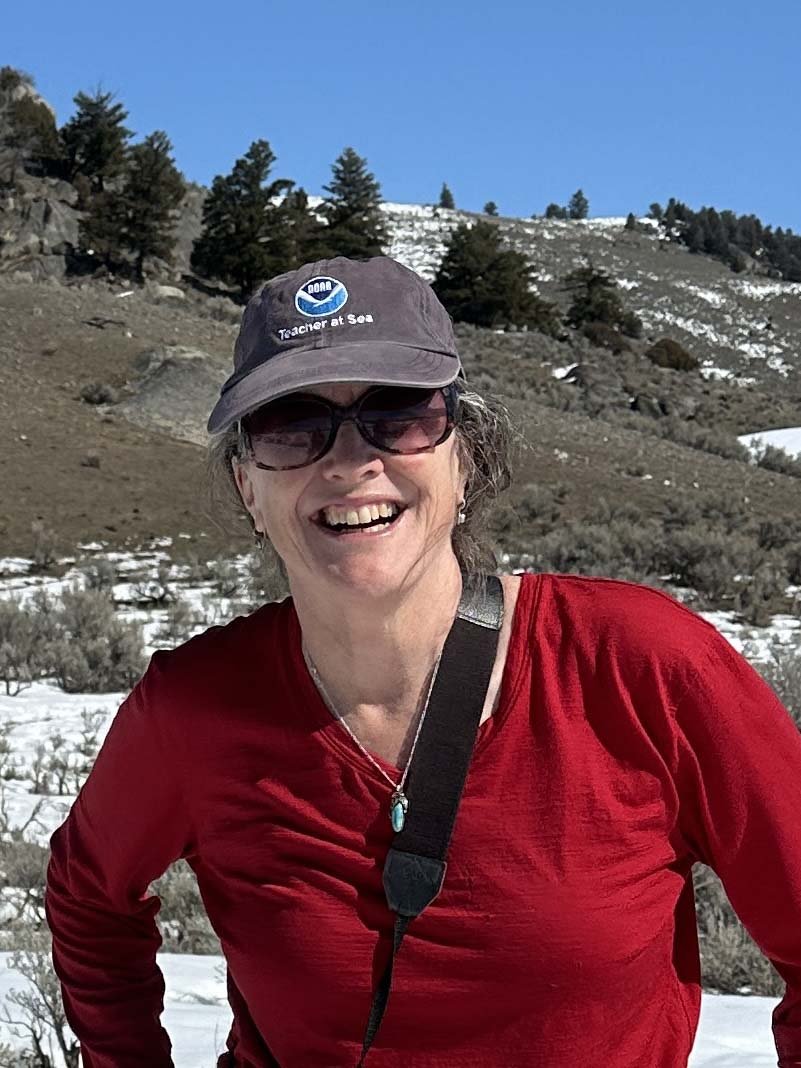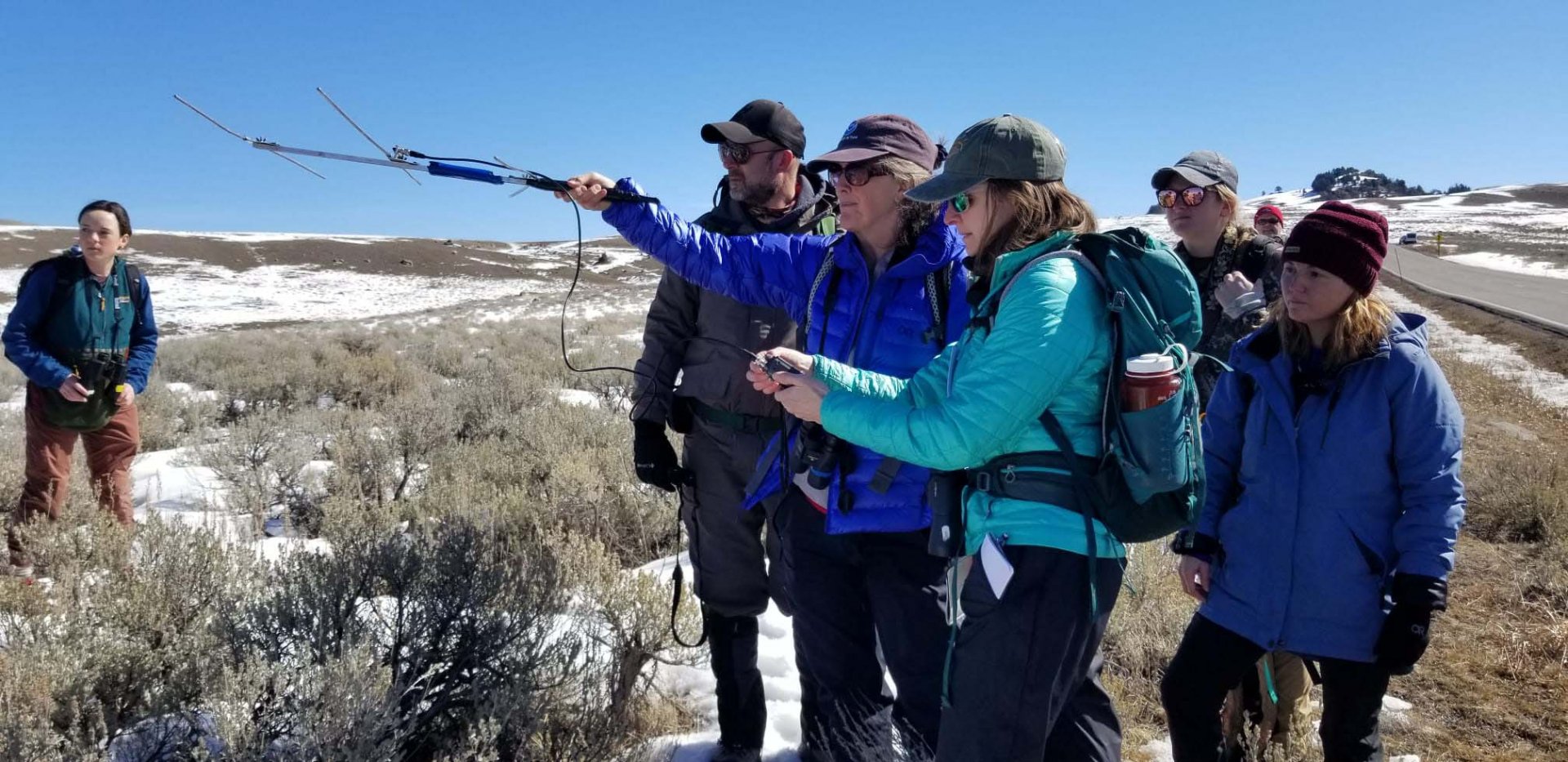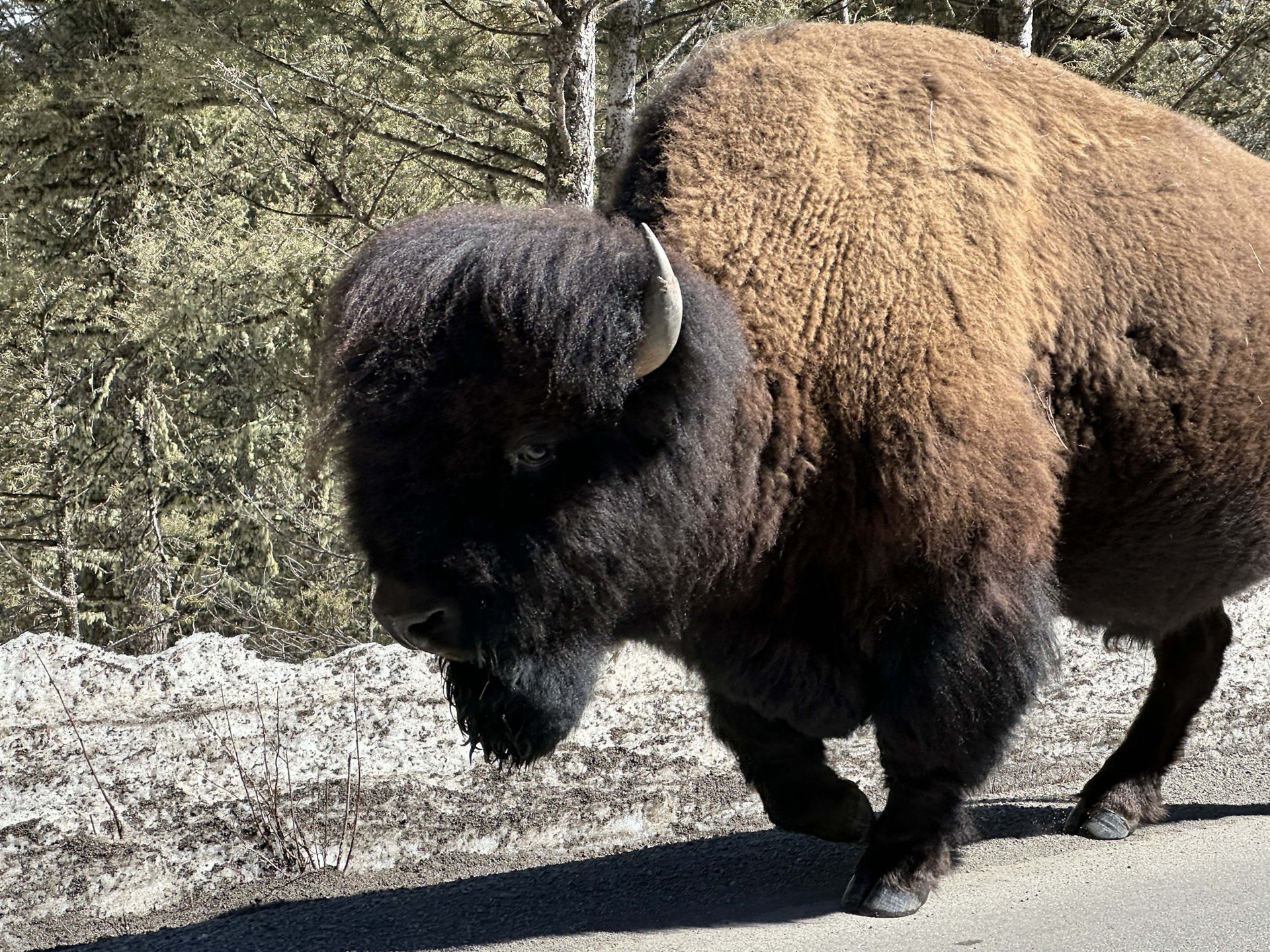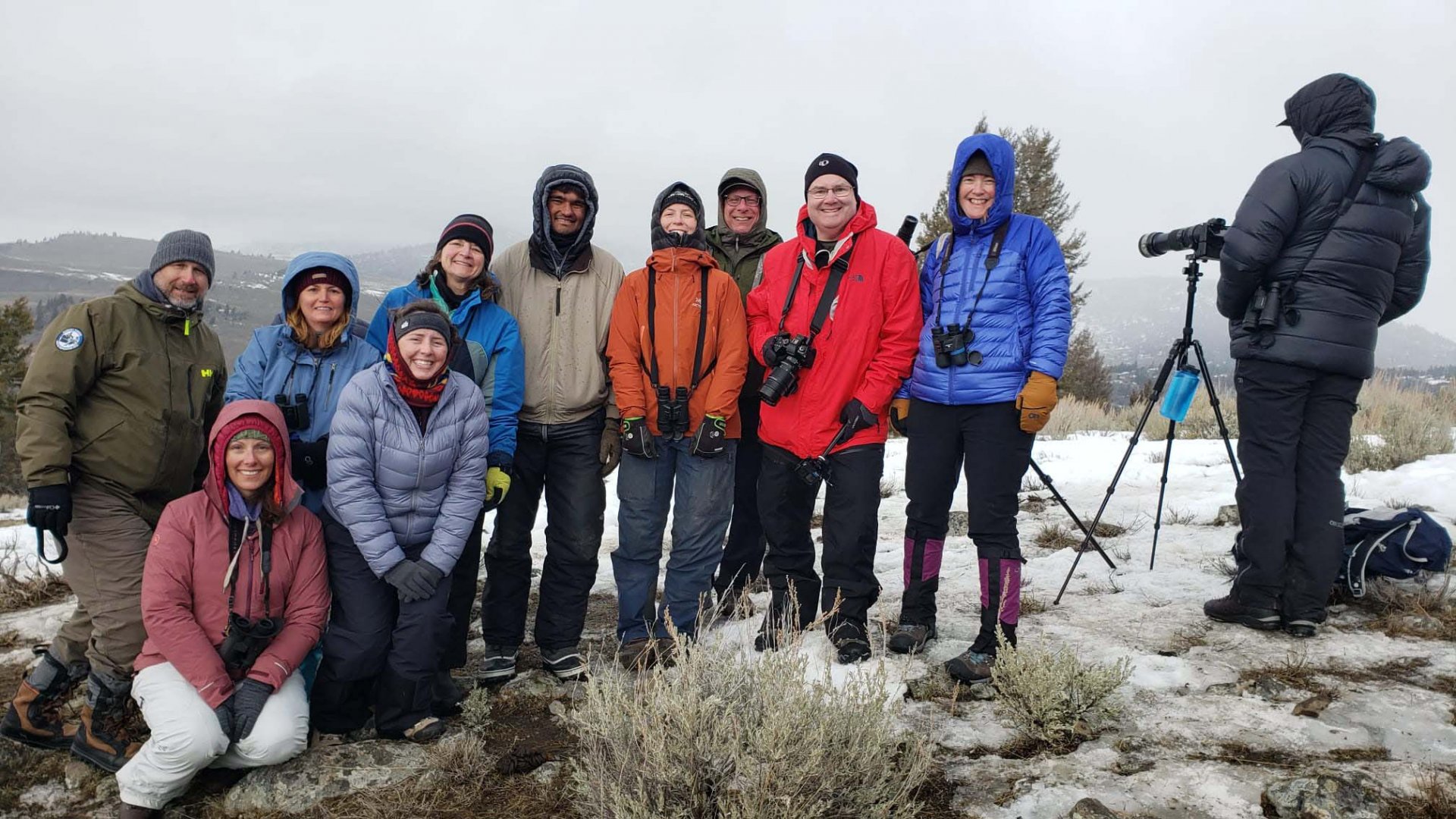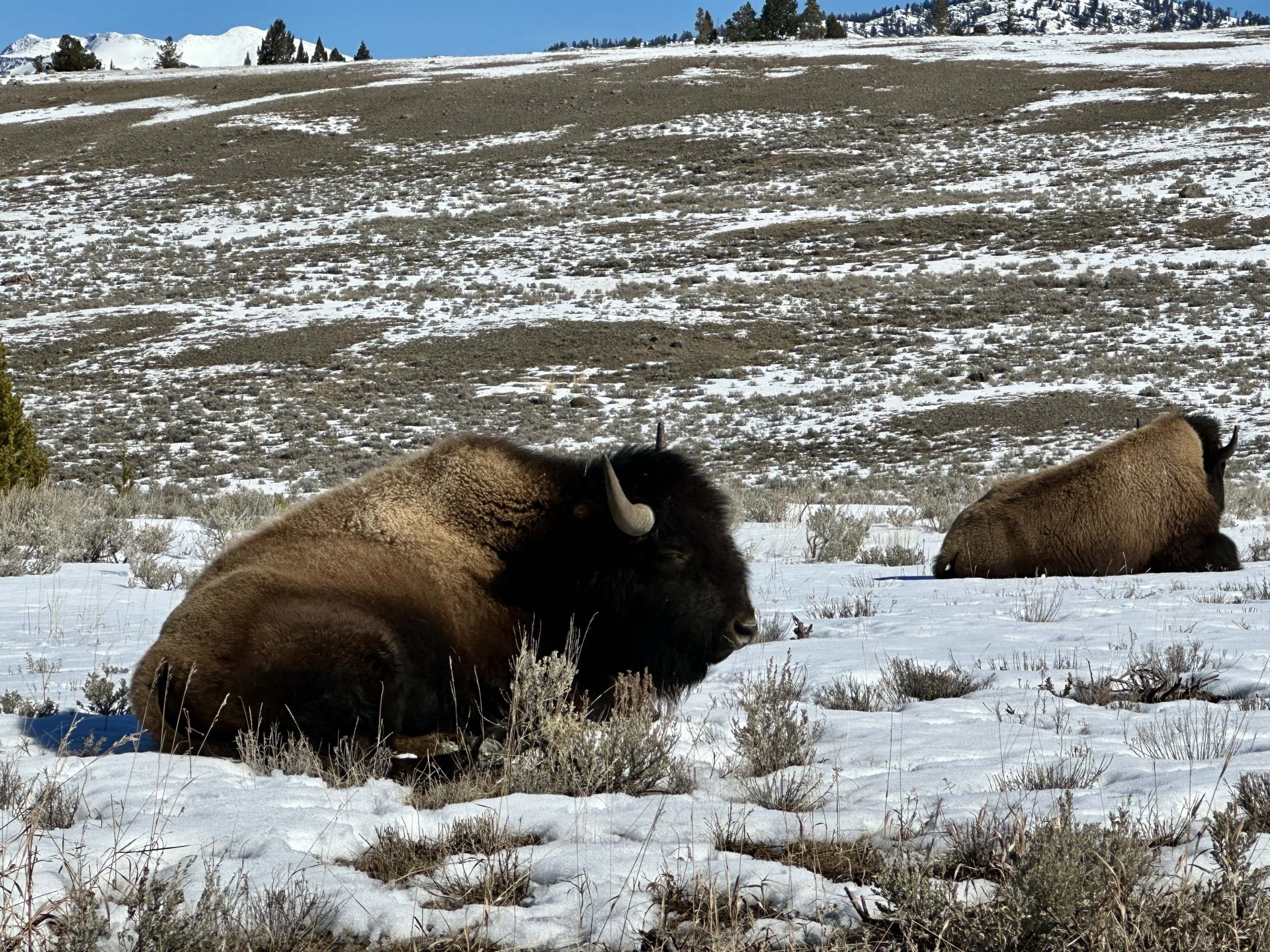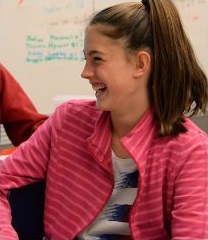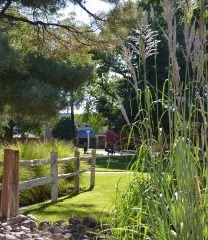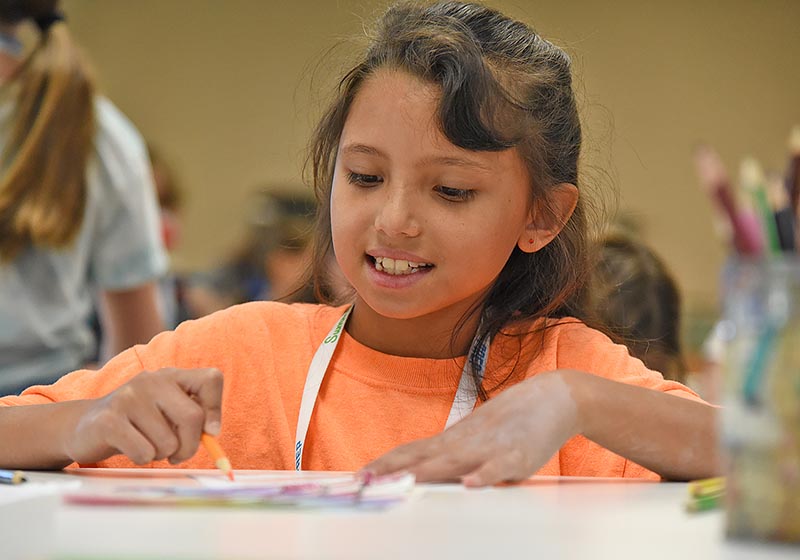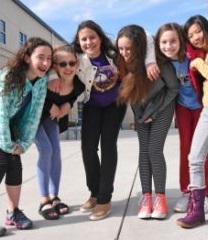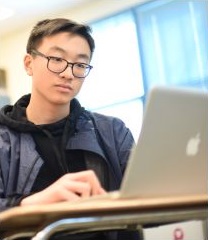Science Teacher Studies Yellowstone During Spring Break
April 3rd, 2024
Collecting bison poop might not be among most people’s spring break highlights, but for Prep science teacher Helen Haskell, it was an exciting professional development opportunity.
Haskell spent part of her spring break on a teacher fellowship in northern Yellowstone National Park with Ecology Project International.
Most of Yellowstone is closed in the winter, but Haskell and 10 other teachers stayed in a hostel just north of Gardiner, Mont., and traveled around the park learning about the wolf reintroduction program, helping with bison population research (including collecting scat samples), and doing basic snow science.
“We saw so much wildlife,” Haskell says. “Usually, I am used to trying to find mammals among all the bird life on trips. In this case, it was the opposite: We were ‘tripping over’ mammals while hunting for birds.”
The northern part of the park is lower in elevation, so many of the park’s animals move to those areas for the winter, she explained.
Haskell teaches Geoscience and is a member of the Outdoor Leadership Program (OLP) staff.
The fellowship teachers were fortunate to have a week of spring-like weather in what has been a dry winter, so there was a limited amount of snow, which made for easier navigation.
Among the trip highlights were seeing wolves three times. “The best was watching them on a bison carcass for several hours,” she said.
Haskell also enjoyed learning more about telemetry and radio tracking bison, meeting wolf researchers and being able to ask them more about their studies, and seeing large herds of bison and elk.
Yellowstone’s “super diverse geology” also captured her imagination. “It’s not just about the geothermal features there. There is so much more,” she shared.
These types of professional development adventures aren’t new to Haskell. In 2017, she spent a month aboard the National Oceanic and Atmospheric Administration (NOAA) ship Fairweather, learning about the science of hydrography.
Among the lessons Haskell will share with her Prep students from her experience is how climate change is impacting Yellowstone’s ecosystem. “Also interesting are the changes to the geothermal features, both from a climate aspect and from the magma movement below the park that has raised and lowered the landscape several inches over the last decade or so,” she added.
As her Prep students know, Haskell’s passion for lifelong learning and the outdoors will certainly carry over into her classroom, with her latest adventure fueling plenty of discussions and lessons.



